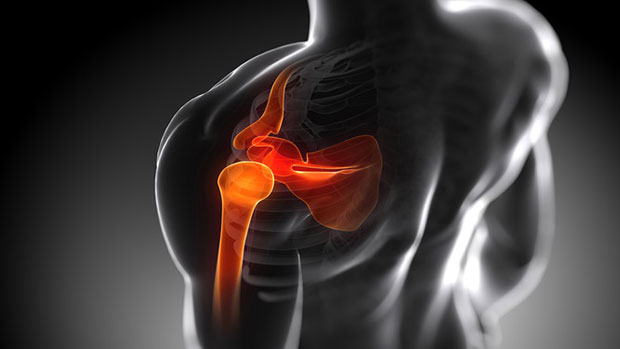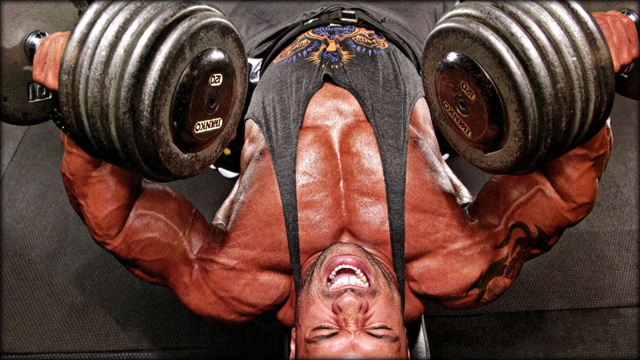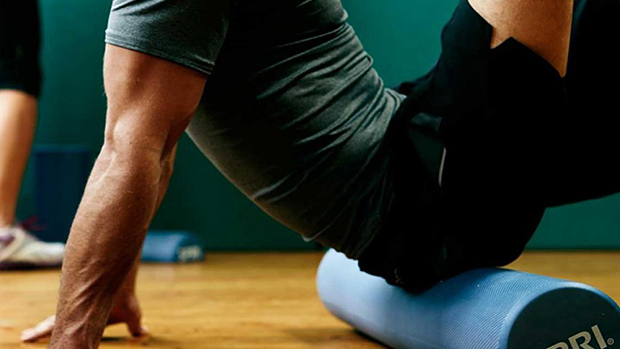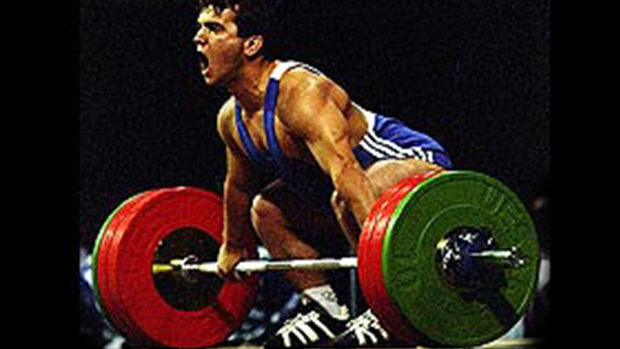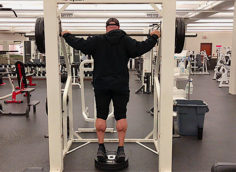Be Afraid, Be Very Afraid
New exercises are being introduced every day. Unfortunately, this doesn't mean these exercises are "better."
When you start combining things like doing max lifts in the bench press, the overhead press, and barbell power cleans with these ridiculous new exercises and implements, you should be afraid, very afraid, for your shoulders.
The shoulders are easier to injure and more susceptible to overuse injuries than the knees and hip joints. This is well established. The recent surge in popularity of these exercises has been tied to an increase in surgical procedures that would have otherwise been unnecessary.
I shudder to think of the osteo-health of the shoulders of these young fitness enthusiasts after years of following this training trend. I suspect by the time they're 40 that many of these men and women will have the shoulder joint health of someone in their 80's.
Here are three particularly silly and potentially damaging exercise trends.

This is one of the most ridiculous exercise infusions of the modern era. Kipping and butterfly-kipping pull-ups as an exercise are basically useless, even if you think they look really cool.
The kipping pull-up has no upside (unless you're in a CrossFit competition) and a huge downside. As Kilgore, et al, point out in their research, "The kipping pull-up is no more of a strength movement than is the burpee or the bodyweight squat. Trainees with existing shoulder pathology or shoulder tightness should always avoid this exercise."
And then Rippetoe added this comment in 2013:
"Kipping chin-ups and pull-ups have proven themselves to be useless as a way to strengthen the stricter versions of these movements – and in the absence of enough strength to do the strict versions, the kipping versions have proven very dangerous for shoulder health."
Most real experts agree that the kipping pull-up has no real use in modern training, but a tremendous downside in regards to shoulder health and risk of injury.

Ring dips are best left to gymnasts and/or other people at lighter bodyweights who are not training for strength or development. Rings dips, like kipping chin-ups, are a very dangerous exercise for your shoulders.
Furthermore, doing them weighted is simply just moronic, like doing weighted squats on a stability ball. Just a tiny discrepancy in lateral movement of the rings would put the shoulder joint in such an unstable position that it could be damaged.
Moreover, shoulder joints can easily be impinged during the performance of ring dips because the load is driving the humerus and AC joint together. Add to this an even slight lateral movement force and many serious injuries occur, often in the form of torn or damaged rotator cuffs.
As Rippetoe advises, "Do your shoulders a favor and do your dips on dip bars!"

And then there are the "battling ropes." They subject the shoulders to a violent assault and hardly anyone's taking note of it.
And if the battling ropes exercise isn't directly causing shoulder injury and trauma, they're certainly predisposing the shoulders to injury from the rest of your training.
The shoulder joint was never meant to endure such violent jarring and assault. Once again it's the shoulder joint that's far more susceptible to injury than the knees or hips. People seem to forget this.
Many lifters and athletes come to me now with various shoulder issues, and almost always they've been utilizing battling ropes or the other two ridiculous exercises mentioned above. My task is to rehab them.

Ironically, if caught early enough, shoulder injuries can be rehabbed with shoulder presses. I prefer seated dumbbell shoulder presses.
This is particularly true if the issue is rotator cuffs or arthritic shoulder joints. The movement, done for higher reps and not max load strength, can go a long way in making the shoulders feel better and work better.
But you should usually hit each head of the deltoid in more traditional body part training as well. I include a front raise of some kind, a lateral raise of some kind, and a bent lateral raise of some kind, usually dumbbell or cable variations.
Within weeks, these lifters report their shoulders feeling better than they've felt in months or years. How much of this is due to performing traditional shoulder movements in a balanced format and how much has to do with just getting away from kipping chin-ups, battling ropes, and ring dips is hard to say.
For all the criticism body part training and isolated single-joint movement training gets these days, these exercises still have their place. They can be, and often should be, the foundation for good program design.
None of my clients have hurt their shoulders on my programs. But none of my programs treat the shoulder with violent assault movements, either.
As usual, some of you will get it. Some of you will not.

